#mandatory?!?
Explore tagged Tumblr posts
Text
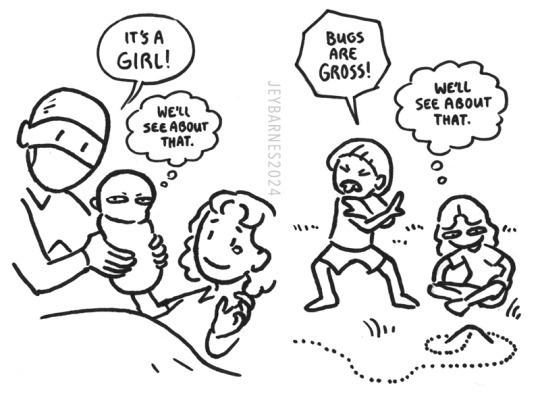

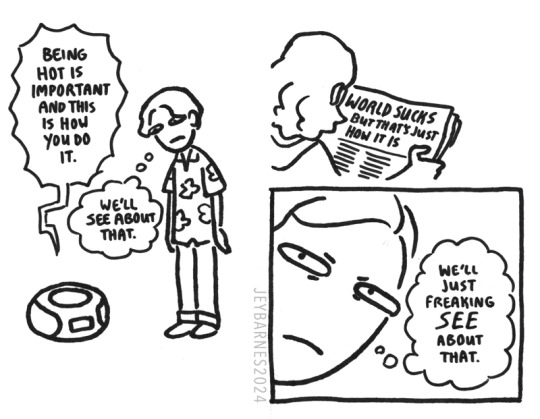
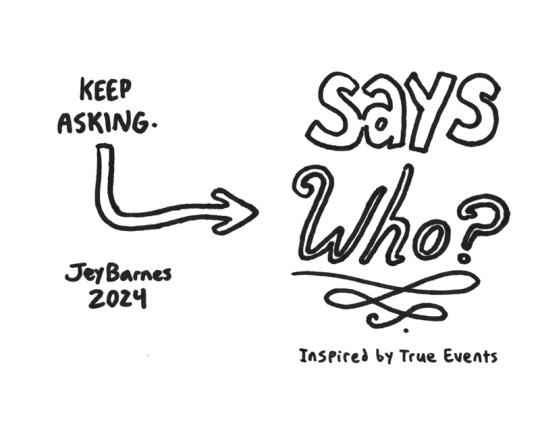
compelled yesterday to make a zine about a lifetime of being a contrarian little shit sketched left-handed and inked right (ow)
#zines#no faster way to make me suspicious of a thing than to tell me it's mandatory#maybe it's autism maybe it's maybelline#comic
20K notes
·
View notes
Text

i lied. here's a bonus.
#artwork#wd gaster#gaster#undertale#deltarune#i had to compensate for the awful shape of his head in the other one#it's surprisingly difficult to draw him looking down#the way the whiteboard functions doesn't help#oh my. look theres a sweet gentleman on the screen#dont mind him - just getting done with morning rituals#there is one thing missing though (it's a kiss)#(give him a good morning kiss)#listen its your fault for smooching the old man because it became part of the routine and now it's mandatory#he will be extra sluggish otherwise
8K notes
·
View notes
Text


typical tavern scene
#dimension 20#fantasy high#fhjy#fabian seacaster#riz gukgak#adaine abernant#kristen applebees#figueroth faeth#gorgug thistlespring#got my version of this in lol. I feel like this is mandatory if u draw fh art#trying to remember whats on the menu at a typical swensen's. its been years since I last was at one#tho I am so absolutely unfamiliar with like elmville level of town scenery. just immediately drew from my own experience lmao#I used to think malls are the same everywhere.... but then I hear from my US friends and. wow they sure are not#mm. good day to reminisce a little bit. but I am now sleepy#not a lot to say abt this I think most of this is pretty straightforward. I did use this to test out some overlays in SAI2#that I never really touched. the talisman on fig's guitar case takes from the house protection talisman you'd put on the front door#and also I think kristen slipping while fully sat down is very funny and special. she means so much to me#okay. alright. I should really go to sleep. and tomorrow I should take my dang walk... see the sun#have a good night lads! enjoy ice cream
5K notes
·
View notes
Text
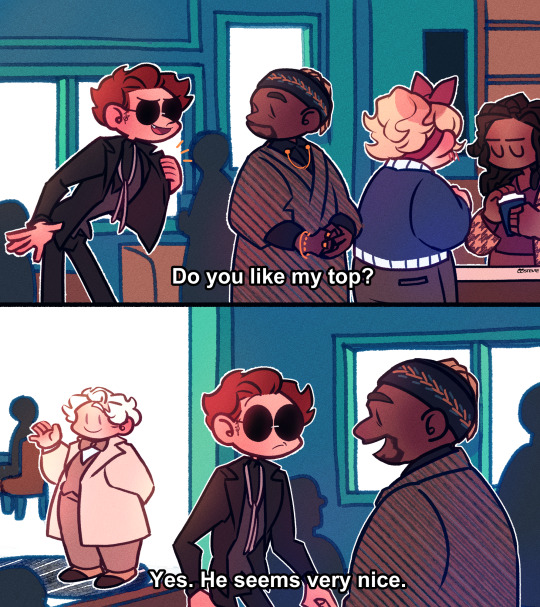
nice indeed 😇
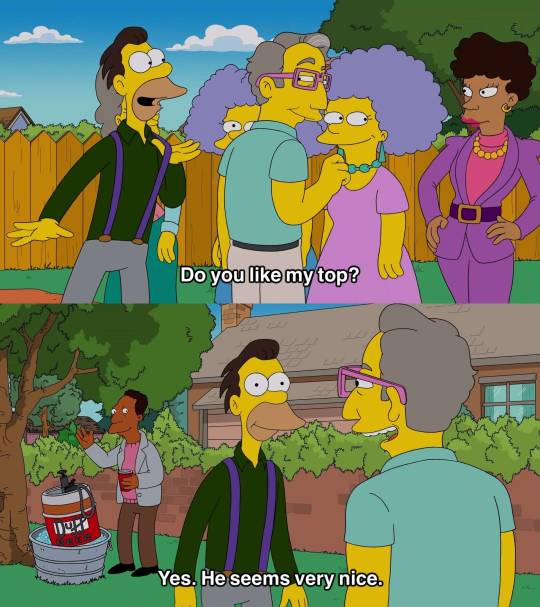
(everyone already knows what the reference is but still)
#good omens#aziraphale#crowley#mutt#maggie#nina#good omens 2#good omens fanart#mandatory disclaimer : this is a joke
9K notes
·
View notes
Text

been getting into neo noirs lately
#sorry i didnt know what to put#but yeah ive been watching a lot of those+the mandatory vampire films for halloween#tf2#team fortress 2#artists on tumblr#fanart#my art#illlustration#tf2 spy#artist
2K notes
·
View notes
Text
*for non americans, that’s what you attend between the ages ~11-14 btw
33K notes
·
View notes
Text
reblog this to pay one attention to me
4K notes
·
View notes
Text

Bedtime Farcille 💙
#farcille#mandatory nightly face smoosh#my art#dungeon meshi#delicious in dungeon#falin dungeon meshi#marcille dungeon meshi
4K notes
·
View notes
Note
Weighing in on metroidvania definitions: A metroidvania MUST HAVE a long vertical shaft filled with enemies. I call them "bastard tubes" and they're mandatory

3K notes
·
View notes
Text

they’re gonna trip at some point
+closeups!



#mandatory for me to untie their shoelaces#my art#fanart#spiderverse#across the spiderverse#atsv#miles morales#miles g morales#miles 42#ganke lee#joining the height difference bandwagon bc its funny#spiderman: atsv#spiderman: across the spiderverse#comic
13K notes
·
View notes
Text

✨ girl dad Joel ✨
made for @kokureno
#he would do anything for his girls#mandatory tea party#girldad#Sarah loves when Joel grows out his hair bc it's easier to put all of her hair clips in it#Tess makes fun of him but she can't deny he looks good with a fancy man bun and a set of wings#Ellie is s menace...she's like here sit...drink this magical tea...you're a fairy now...and I'm your loyal companion...a space dragon#joel x tess#joel miller#tess servopoulos#tess tlou#joel tlou#tessjoel#tess lives#ellie williams#sarah miller#tessjoelelliesarah
1K notes
·
View notes
Text
tumblr users will have the most inaccessible, unreadable, low contrast, flashing carrd you can possibly imagine, with a dni full of insider acronyms with no translation and numerous link buttons labelled with cryptic captions, and then go ahead and put “ableists dni and kys!” on that carrd
#yeah i’m bitter about carrds becoming so hostile to disabled people#nobody with vision issues or photosensitivity or processing issues or epilepsy or memory issues could possibly read your carrd#small changes like proper colour contrast between background and text can make a world of difference in making your page accessible#even just spelling out the acronyms in your dni or mentioning WHERE a mysterious link will actually lead is so helpful#i see so many links that are just random literary quotes that turn out to lead to a mandatory dni. how would anyone know that??#txt#accessibility#1000
7K notes
·
View notes
Text



how to say “I love you” in x-files [13/?] ⤷ 1.21 — “Tooms”
You'd be in trouble just sitting in this car, and I'd hate to see you carry an official reprimand in your career file because of me.
#i know this has been done a million times. but#come on. this is mandatory for this series#plus i need to add my screaming in the tags at the end of this so *clears throat* prepare yourself (at the end)#edit. i wanted to do this in the tags but it won't let me say that much so it's in the first reblog lol#my gifs#em.txf#txf ily#the x files#txfedit#dailytxf#msr#msredit#useremsi#useralf#usergeorgette#usernessa#singinprincess#usergabriella#userairi#poangpals
1K notes
·
View notes
Text


Mother of Drogon
#game of thrones#gotedit#gameofthronesedit#asoiaf#asoiafedit#hotdedit#house of the dragon#house targaryen#mother of dragons#mother of drogon#my gif#daenerys targaryen#drogon#dragon#year of the dragon#emilia clarke#houseofthedragonedit#tvandfilm#dailytvfilmgifs#dailytvwomen#ladiesblr#tvedit#she mothered and I still love her#of course i have to have these gifs to be made on my blog yes its mandatory#iconic shots#how it started vs how it ended#fire and blood#dragon queen#girlboss#snow
1K notes
·
View notes
Text
How lock-in hurts design

Berliners: Otherland has added a second date (Jan 28) for my book-talk after the first one sold out - book now!

If you've ever read about design, you've probably encountered the idea of "paving the desire path." A "desire path" is an erosion path created by people departing from the official walkway and taking their own route. The story goes that smart campus planners don't fight the desire paths laid down by students; they pave them, formalizing the route that their constituents have voted for with their feet.
Desire paths aren't always great (Wikipedia notes that "desire paths sometimes cut through sensitive habitats and exclusion zones, threatening wildlife and park security"), but in the context of design, a desire path is a way that users communicate with designers, creating a feedback loop between those two groups. The designers make a product, the users use it in ways that surprise the designer, and the designer integrates all that into a new revision of the product.
This method is widely heralded as a means of "co-innovating" between users and companies. Designers who practice the method are lauded for their humility, their willingness to learn from their users. Tech history is strewn with examples of successful paved desire-paths.
Take John Deere. While today the company is notorious for its war on its customers (via its opposition to right to repair), Deere was once a leader in co-innovation, dispatching roving field engineers to visit farms and learn how farmers had modified their tractors. The best of these modifications would then be worked into the next round of tractor designs, in a virtuous cycle:
https://securityledger.com/2019/03/opinion-my-grandfathers-john-deere-would-support-our-right-to-repair/
But this pattern is even more pronounced in the digital world, because it's much easier to update a digital service than it is to update all the tractors in the field, especially if that service is cloud-based, meaning you can modify the back-end everyone is instantly updated. The most celebrated example of this co-creation is Twitter, whose users created a host of its core features.
Retweets, for example, were a user creation. Users who saw something they liked on the service would type "RT" and paste the text and the link into a new tweet composition window. Same for quote-tweets: users copied the URL for a tweet and pasted it in below their own commentary. Twitter designers observed this user innovation and formalized it, turning it into part of Twitter's core feature-set.
Companies are obsessed with discovering digital desire paths. They pay fortunes for analytics software to produce maps of how their users interact with their services, run focus groups, even embed sneaky screen-recording software into their web-pages:
https://www.wired.com/story/the-dark-side-of-replay-sessions-that-record-your-every-move-online/
This relentless surveillance of users is pursued in the name of making things better for them: let us spy on you and we'll figure out where your pain-points and friction are coming from, and remove those. We all win!
But this impulse is a world apart from the humility and respect implied by co-innovation. The constant, nonconsensual observation of users has more to do with controlling users than learning from them.
That is, after all, the ethos of modern technology: the more control a company can exert over its users ,the more value it can transfer from those users to its shareholders. That's the key to enshittification, the ubiquitous platform decay that has degraded virtually all the technology we use, making it worse every day:
https://pluralistic.net/2023/02/19/twiddler/
When you are seeking to control users, the desire paths they create are all too frequently a means to wrestling control back from you. Take advertising: every time a service makes its ads more obnoxious and invasive, it creates an incentive for its users to search for "how do I install an ad-blocker":
https://www.eff.org/deeplinks/2019/07/adblocking-how-about-nah
More than half of all web-users have installed ad-blockers. It's the largest consumer boycott in human history:
https://doc.searls.com/2023/11/11/how-is-the-worlds-biggest-boycott-doing/
But zero app users have installed ad-blockers, because reverse-engineering an app requires that you bypass its encryption, triggering liability under Section 1201 of the Digital Millennium Copyright Act. This law provides for a $500,000 fine and a 5-year prison sentence for "circumvention" of access controls:
https://pluralistic.net/2024/01/12/youre-holding-it-wrong/#if-dishwashers-were-iphones
Beyond that, modifying an app creates liability under copyright, trademark, patent, trade secrets, noncompete, nondisclosure and so on. It's what Jay Freeman calls "felony contempt of business model":
https://locusmag.com/2020/09/cory-doctorow-ip/
This is why services are so horny to drive you to install their app rather using their websites: they are trying to get you to do something that, given your druthers, you would prefer not to do. They want to force you to exit through the gift shop, you want to carve a desire path straight to the parking lot. Apps let them mobilize the law to literally criminalize those desire paths.
An app is just a web-page wrapped in enough IP to make it a felony to block ads in it (or do anything else that wrestles value back from a company). Apps are web-pages where everything not forbidden is mandatory.
Seen in this light, an app is a way to wage war on desire paths, to abandon the cooperative model for co-innovation in favor of the adversarial model of user control and extraction.
Corporate apologists like to claim that the proliferation of apps proves that users like them. Neoliberal economists love the idea that business as usual represents a "revealed preference." This is an intellectually unserious tautology: "you do this, so you must like it":
https://boingboing.net/2024/01/22/hp-ceo-says-customers-are-a-bad-investment-unless-they-can-be-made-to-buy-companys-drm-ink-cartridges.html
Calling an action where no alternatives are permissible a "preference" or a "choice" is a cheap trick – especially when considered against the "preferences" that reveal themselves when a real choice is possible. Take commercial surveillance: when Apple gave Ios users a choice about being spied on – a one-click opt of of app-based surveillance – 96% of users choice no spying:
https://arstechnica.com/gadgets/2021/05/96-of-us-users-opt-out-of-app-tracking-in-ios-14-5-analytics-find/
But then Apple started spying on those very same users that had opted out of spying by Facebook and other Apple competitors:
https://pluralistic.net/2022/11/14/luxury-surveillance/#liar-liar
Neoclassical economists aren't just obsessed with revealed preferences – they also love to bandy about the idea of "moral hazard": economic arrangements that tempt people to be dishonest. This is typically applied to the public ("consumers" in the contemptuous parlance of econospeak). But apps are pure moral hazard – for corporations. The ability to prohibit desire paths – and literally imprison rivals who help your users thwart those prohibitions – is too tempting for companies to resist.
The fact that the majority of web users block ads reveals a strong preference for not being spied on ("users just want relevant ads" is such an obvious lie that doesn't merit any serious discussion):
https://www.iccl.ie/news/82-of-the-irish-public-wants-big-techs-toxic-algorithms-switched-off/
Giant companies attained their scale by learning from their users, not by thwarting them. The person using technology always knows something about what they need to do and how they want to do it that the designers can never anticipate. This is especially true of people who are unlike those designers – people who live on the other side of the world, or the other side of the economic divide, or whose bodies don't work the way that the designers' bodies do:
https://pluralistic.net/2022/10/20/benevolent-dictators/#felony-contempt-of-business-model
Apps – and other technologies that are locked down so their users can be locked in – are the height of technological arrogance. They embody a belief that users are to be told, not heard. If a user wants to do something that the designer didn't anticipate, that's the user's fault:
https://www.wired.com/2010/06/iphone-4-holding-it-wrong/
Corporate enthusiasm for prohibiting you from reconfiguring the tools you use to suit your needs is a declaration of the end of history. "Sure," John Deere execs say, "we once learned from farmers by observing how they modified their tractors. But today's farmers are so much stupider and we are so much smarter that we have nothing to learn from them anymore."
Spying on your users to control them is a poor substitute asking your users their permission to learn from them. Without technological self-determination, preferences can't be revealed. Without the right to seize the means of computation, the desire paths never emerge, leaving designers in the dark about what users really want.
Our policymakers swear loyalty to "innovation" but when corporations ask for the right to decide who can innovate and how, they fall all over themselves to create laws that let companies punish users for the crime of contempt of business-model.
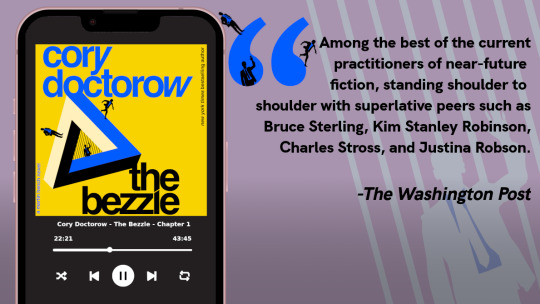
I'm Kickstarting the audiobook for The Bezzle, the sequel to Red Team Blues, narrated by @wilwheaton! You can pre-order the audiobook and ebook, DRM free, as well as the hardcover, signed or unsigned. There's also bundles with Red Team Blues in ebook, audio or paperback.

If you'd like an essay-formatted version of this post to read or share, here's a link to it on pluralistic.net, my surveillance-free, ad-free, tracker-free blog:
https://pluralistic.net/2024/01/24/everything-not-mandatory/#is-prohibited

Image: Belem (modified) https://commons.wikimedia.org/wiki/File:Desire_path_%2819811581366%29.jpg
CC BY 2.0 https://creativecommons.org/licenses/by/2.0/deed.en
#pluralistic#desire paths#design#drm#everything not mandatory is prohibited#apps#ip#innovation#user innovation#technological self-determination#john deere#twitter#felony contempt of business model
3K notes
·
View notes